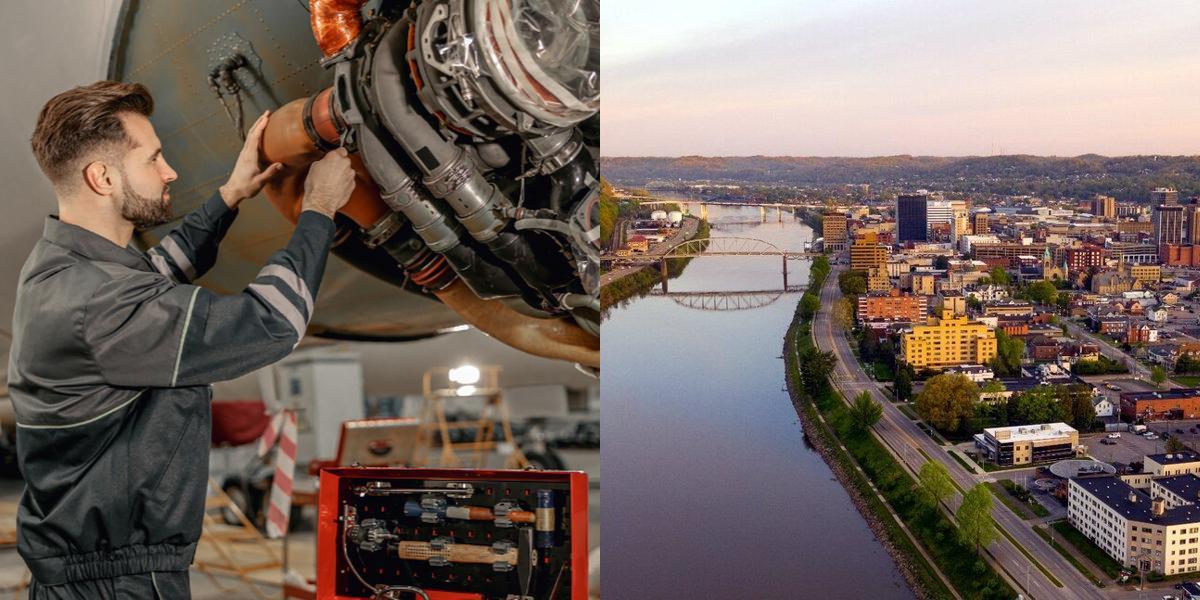How to Become an Aviation Mechanic in West Virginia

Aviation mechanics, also known as aircraft maintenance technicians, play a crucial role in ensuring the safety and efficiency of aircraft. They are responsible for inspecting, repairing, and maintaining various components of an aircraft to ensure it operates smoothly.
How do I get a job as an Aviation Mechanic?
After obtaining your aviation mechanic certification, you will be ready to start your career as an aviation mechanic. There are several steps you can take to increase your chances of finding a job in this field.
First, it is important to create a professional resume that highlights your education, work experience, and any specialized skills you have acquired. Be sure to include any certifications or licenses you have obtained, as well as any relevant training or coursework. This will help potential employers see that you have the necessary qualifications for the job.
Next, you should start looking for job opportunities in your area. There are several resources available to help you find aviation mechanic jobs, including online job boards, industry-specific websites, and networking events. Consider reaching out to local aviation maintenance facilities and introducing yourself to the hiring managers. This can help you make connections and increase your chances of finding a job.
When applying for aviation mechanic jobs, be sure to tailor your application materials to each specific job opportunity. Research the company and the position you are applying for, and highlight the skills and experience that are most relevant to that particular job. This will show potential employers that you have taken the time to understand their needs and are a good fit for the position.
Once you have secured an interview, it is important to prepare thoroughly. Review common interview questions and practice your answers. Be prepared to discuss your education, work experience, and any challenges or successes you have had in your career. Additionally, be prepared to demonstrate your technical skills and problem-solving abilities.
During the interview, be professional, confident, and enthusiastic. Show the interviewer that you are passionate about aviation and committed to a career as an aviation mechanic. Be sure to ask questions about the company and the position to demonstrate your interest and engagement.
After the interview, be sure to follow up with a thank-you note or email. This will show the interviewer that you appreciate the opportunity to interview and are still interested in the position. It is also a good opportunity to reiterate your qualifications and interest in the job.
Career Paths and Opportunities after Becoming an Aviation Mechanic
Becoming an aviation mechanic opens up a wide range of career paths and opportunities. Once you have gained experience and established yourself in the field, you may choose to specialize in a specific area of aviation maintenance, such as avionics or engine repair. Specializing can lead to higher-paying jobs and increased job security.
Another option for career advancement is to become a supervisor or manager in an aviation maintenance facility. As a supervisor or manager, you will be responsible for overseeing a team of mechanics and ensuring that all maintenance work is carried out efficiently and according to regulations. This role requires strong leadership and communication skills, as well as a deep understanding of aviation maintenance processes and procedures.
Some aviation mechanics choose to become self-employed and start their own maintenance or repair businesses. This can be a challenging but rewarding path, as it allows you to have more control over your work and potentially earn a higher income. Starting your own business requires not only technical skills but also business acumen, including marketing, financial management, and customer service.
In addition to these traditional career paths, there are also opportunities for aviation mechanics to work in related fields, such as aircraft manufacturing, aviation safety, and aviation consulting. These roles often require additional education or certifications but can provide a broader range of career options and opportunities for advancement.
Final Thoughts
Becoming an aviation mechanic is a rewarding and fulfilling career choice. It requires dedication, hard work, and a commitment to lifelong learning. By following the steps outlined in this article, you can obtain your aviation mechanic certification and start your career in this exciting field.
Remember to continue to build your skills and knowledge throughout your career. Stay up to date with the latest advancements in aviation technology and regulations. Seek out opportunities for professional development and networking. This will not only help you stay competitive in the job market but will also enhance your ability to provide safe and efficient maintenance for aircraft.
Whether you choose to work for an aviation maintenance facility, start your own business, or pursue a specialized role, there are numerous opportunities for growth and advancement in the field of aviation mechanics. With the right education, experience, and determination, you can build a successful and fulfilling career as an aviation mechanic.
If this article doesn't match what you're looking for, you can check out these other articles:

Athena is Co-founder and CEO of Dreambound.




